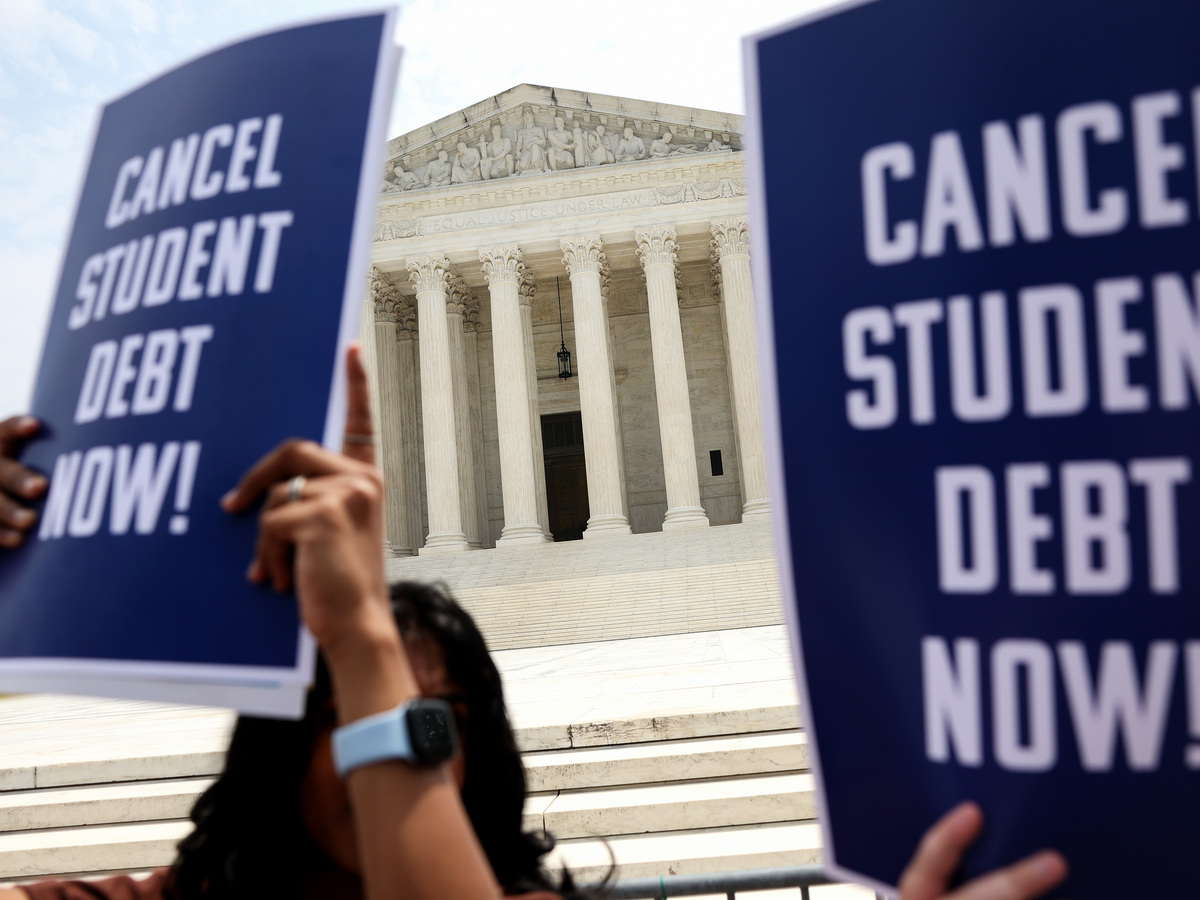
Student debt relief activists participate in a rally at the U.S. Supreme Court on Friday in Washington, DC. In a 6-3 decision the Supreme Court struck down the Biden administration's student debt forgiveness program in Biden v. Nebraska. (Photo by Kevin Dietsch/Getty Images) Kevin Dietsch/Getty Images hide caption

Student debt relief activists participate in a rally at the U.S. Supreme Court on Friday in Washington, DC. In a 6-3 decision the Supreme Court struck down the Biden administration's student debt forgiveness program in Biden v. Nebraska. (Photo by Kevin Dietsch/Getty Images)
Kevin Dietsch/Getty ImagesThe Supreme Court ended its term this week with three rulings that will have far reaching consequences in the lives of millions of Americans
The court struck down President Biden's student debt relief program. It also sided with a Colorado website designer who wants to refuse business to a same-sex couple, and it effectively killed affirmative action in college admissions.
All three rulings were a 6-3 split. All of the court's Republican-nominated justices voting against the three justices who were put forward by Democratic presidents.
NPR's Scott Detrow speaks with two legal experts, journalist Dahlia Lithwick and law professor Leah Litman from the University of Michigan, about what this term tells us about the current Supreme Court.
Email us at
This episode was produced by Karen Zamora and Lauren Hodges. It was edited by Jeanette Woods and Tinbete Ermyas. Our executive producer is Sami Yenigun.

 Live Radio
Live Radio